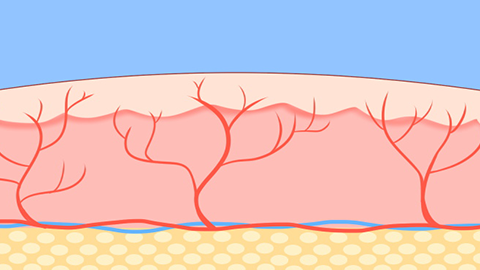Are dilated capillaries harmful?
Generally speaking, whether capillary dilation is harmful depends on its location, underlying causes, and associated symptoms. If it occurs only on the skin surface without causing discomfort, it usually poses no significant harm. However, if it appears in vital organs or is caused by an underlying disease, it may be harmful. A detailed analysis is as follows:

If capillary dilation occurs only on the skin surface, such as on the face or legs, and is caused by factors like heredity, temperature changes, or prolonged sun exposure, and if it only manifests as localized redness or fine red blood vessels without pain, bleeding, or swelling, then it mainly affects appearance and generally poses no direct harm to physical health, thus requiring no excessive concern.
If capillary dilation occurs in vital organs such as the lungs or gastrointestinal tract, or is caused by conditions such as systemic lupus erythematosus, liver cirrhosis, or hereditary hemorrhagic telangiectasia, it may be accompanied by symptoms such as coughing, hemoptysis (coughing up blood), abdominal pain, or rectal bleeding. This type of capillary dilation may impair normal organ function and potentially worsen the underlying disease.
In daily care, for capillary dilation on the skin surface, it is important to protect against sun exposure, avoid alternating hot and cold stimuli, choose mild skincare products, and reduce skin damage. Establishing regular sleep patterns and healthy dietary habits, as well as avoiding smoking and alcohol consumption, can help reduce the risk of worsening capillary dilation and support normal bodily functions.





